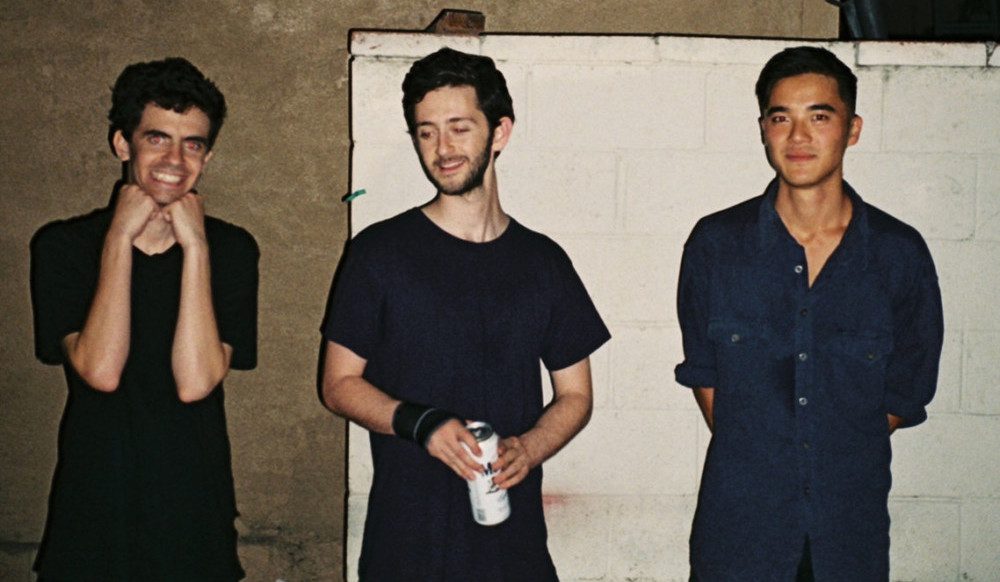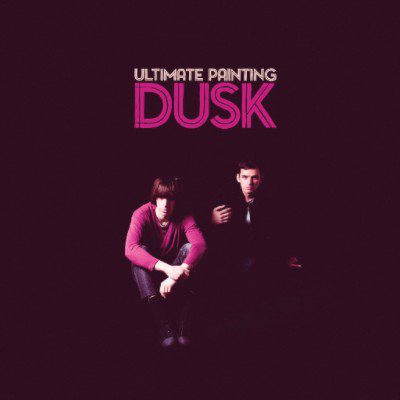
James Kelly, former frontman of Irish black metal trio, Alter Of Plagues, hasn’t been sitting idly since the group’s disbandment in 2013. In fact, he’s been holed up in London working on a debut solo album, which he released earlier this summer under the moniker WIFE. What’s In Between is lush, multidimensional and stylistically cohesive, despite that it’s Kelly’s debut foray into various genres the album encompasses. Each song tells its own story sonically and narratively, moving from light to dark, from bass-heavy to melodically ethereal and vocal-driven. We wanted to hear the stories behind these beautiful tracks, so we sat down for a chat with Kelly about what compelled his departure from Metal, and what the future holds for him.
AF: Hi! Thanks so much for talking to us. We’re huge fans of your work, and we’re super excited about the new album. Can you tell us a little bit about what prompted your transition from Alter Of Plagues to WIFE?
James: Hello! Yes, definitely. I think one of the main reasons has to do with the fact that I moved from a very rural area where I could make loud noises as late into the night as I wanted, to London, where all of a sudden you have to be a bit more considerate of your volume because you’re living on top of other people. And that’s when I started making music with headphones on a computer. As far as writing stuff that was more electronic or pop leaning I think it’s always been stuff that I’ve really loved and had a passion for, but, the band kind of accidentally wound up taking up a lot more of my time then I had ever planned for. Not that I ever regretted it, but after a couple of years I decided it was time to take stock and see where I was, regarding what kind of music I was putting out. I decided it was just time to consciously change things up, and not get stuck doing one thing. And that’s how it initially came about. I mean in terms of how the two feed into each other, I’ve always found that the music I like is often tonally similar, so I’m never too worried about what genre something is or whether something’s… a happy song or sad song. Rather things always kind of have a certain tone and sound that’s consistent throughout. And I think I took over some of the tones and textures of the stuff that I would have used with Alter of Plagues while I was writing What’s In Between.
AF: Yeah, you can definitely hear some of the influences from Alter of Plagues in your new work, but it’s different in some obvious, and indelible ways. Can you tell me a little bit about your musical background growing up in Ireland, and what kind of music you listened to as a kid, as well as what you sort of gravitated toward as you started playing yourself?
James: Yeah I mean when you grow up… I grew up in the countryside in Ireland, when you grow up there, you either join a sports team or you don’t. And I didn’t. So that means you’ve got to find alternative ways of entertaining yourself, so I just got in to music from a pretty young age. When I was pretty young I remember I had older cousins who were into the grunge thing, so I was used to hearing them play Nirvana tapes and stuff like that, which really excited me. And I used to get copies of their Pearl Jam tapes, etc. I had another friend whose older brothers were really caught up in the rave thing, and I remember hearing The Prodigy’s, Music for the Generation, and really loving it. It kind of demonstrates how polar my tastes were as a kid. At one end there was The Prodigy and at the other end there was Metallica and Nirvana. I think I just kept developing that throughout my life. Growing up I would always save up for the summer, with whatever summer job I had, and then I’d buy a beat up guitar or a beat up drum kit and I’d learn how to play them on my own. And because there was no one around to start a band with, I just got in to the habit of being the entire band myself. I’d record the drums and play them off a tape player and play along with my voice and my guitar…Then I guess when I got a bit older (when I was allowed to go to the city) is when I met other guys who liked Marilyn Manson, and being 15 and smoking cigarettes.
AF: Haha, you caught the rebellion bug, yeah?
James: Exactly, and we started doing groups together and that’s when I got more into actually being in bands. So that’s where it all kind of started out. But like I said, it really stems from not being in to sports as a child. That’s what got me into doing music.
AF: Nice. I can definitely relate to the whole not doing sports thing. Anyway, in your bio it says that Alter of Plagues disbanded because it had perhaps reached it’s creative apex. Do you feel like, in pursuing this solo project you’re a bit less limited creatively? I mean, do you feel generally like there’s truth in the notion that once you’ve reached your creative limit with something, you should let it go? And do you feel like this is something that young musicians struggle with these days? Sorry to bombard!
James: Haha, no worries. yeah, so what happened with the band was really more a case of it getting to the point where I was trying to put material into it that was so alien to what Alter of Plague was that I realized it can’t be this group anymore, it has to be something new. And I’ve really come full circle… I used to be into throwing everything out and seeing what sticks in terms of different sounds and styles, but at this point I believe that clarity, and focus in the sense of what you want to achieve in a particular act is quite important (because otherwise you can spend a lot of time making a lot of work that’s quite polar and opposite and doesn’t have any sort of cohesiveness). So, what this allows me to do is a lot of things I couldn’t have done with Alter of Plagues. Just for one example, the song “Fruit Tree”, off the record, is the first time I’ve ever written a really extroverted, happy song.
AF: It’s an awesome song, too.
James: Thanks, Yea that’s the first time I have ever done that. And it was amazing to do that, but it was something Alter of Plagues did not have the capacity for, because it just was not that type of act.
AF: Right, emotionally it wasn’t that kind of music.
James: Yea, exactly. I mean, I think there is definitely a pressure on people because of the nature of music now and the speed at which it comes out, and the fact that when it does come out it’s just buried under new stuff within minutes. I think it’s more important to just focus on setting the mark really high with a small body of work than it is to consistently churn out stuff and have it be mediocre.
AF: Yea, absolutely. Your new album definitely achieves that; it’s the first thing you notice, especially with the fact that it melds together so many different genres, you don’t know if you are listening to pop music or electronic. But I just want to talk about what you are exploring thematically through the album, this idea of duality between light and dark. And obviously nominally it reflects that and all of the songs explore this idea. Was this planned or did it emerge when you were writing the songs?
James: Like you’ve said, to me What’s In Between is open to interpretation… because in many ways when I create work, the creation of the work is me figuring it out myself; sometimes I don’t even know what it means to me until it’s finished. I think the title relates to what is it that exists between two people emotionally and physically, as well as in a bigger sense, what is between the general nonsense and bullshit we stomach from the powers that be, whether they’re politicians; whether it’s Beyonce one day being an angelic figure, and the next day being this half naked woman who is destroying feminism in one fell swoop. It’s just a mix of all these kinds of things. In a lot of ways, if WIFE started because I moved to London, I also think that some of these kinds of sentiments emerged from living in a city like London. It’s a place that’s kind of rife with falseness and people presenting themselves as something they think you want to see, rather than who they are. So I think the title kind of relates to that.
AF: I think along those lines my favorite song on the album is “Tongue”. And you talk about this masquerade that people engage in order to disguise who they really are or appear as something that they are not. I was wondering if you feel like you yourself are… I mean I feel like we are all prone to slip in to that sometimes, and if you’ve struggled with it yourself as an artist, especially with the music industry being so rife with false pretenses and people wanting you to fit in to a certain box creatively. I was just wondering if or how you’ve struggled with that idea yourself? I mean I think that’s why the song resonated with me particularly.
James: I think a lot of it overall is my reaction to it. While creating the album, I slowly became a part of whatever scene it is that my contemporaries and me are part of, just by being signed to the label, triangle, and things. I’ve started just to notice all the people who walk around wearing Givenchy, yet they live in this beat up old apartment trying to present themselves as something they’re not, and almost afraid of presenting themselves as something that they are not. I think what I wanted to do overall was just to be brutally honest lyrically and be brutally honest in presenting myself. Also, I think people have this weird problem with men presenting themselves as vulnerable, or as open, or as emotional in any way. It’s like, Burial is like crybaby music and Drake gets ridiculed for being in any way sentimental. I think that’s a really negative thing and it’s very unhealthy. It’s really harmful towards men who are trying to express something that is very sincere. I think in a lot of ways the sentiment behind the record was my reaction, that I’m going to be 100% honest and I’m going to pour my heart on paper and I’m not going to be apologetic for it, and I’m not going to let myself be open to anyone trying to critique it, because it is like an affirmation for me to do that. It’s empowering.
AF: That’s amazing. It really shows in your work. I feel like when someone can get to that level of self-awareness, and to a point where they’re unmoored from the social conventions that might tell you to deny the energy to make something. It’s getting beyond this that you make the best art, and it really does show through the album.
James:Oh Absolutely. And another thing I did, we were just talking about the light and dark duality there. Another thing I deliberately did, was a very conscious decision to have some tracks that are almost jarring when paired against each other. Like the fourth track “Salvage” is this really aggressive heavy track that almost sounds like it doesn’t belong there, but that’s again my reaction to people like, if you listen to any Katy Perry record or Beyonce record or Brittany record, that record is like a connection of 14 songs that seem to be just checking boxes.
AF: Yea, exactly.
James:It’s like they’re covering their stylistic basis because that’s kind of what pop music is supposed to be, and in getting away from that, in a way, is something that I found very liberating.
AF: Yea totally. I mean I think in that it’s jarring it works thematically with what you’re trying to achieve throughout.
James: No exactly. I mean I’m asking people who listen to it, at the time just asking them a question, it’s like what are they hearing between all of those sounds? What is between all of those polar songs that are on the record?
AF: Yea it is really beautiful. What do you think is your most intimate song on the album?
James: I would say probably the closer. I can’t remember what it’s called again (laughs). I haven’t listened to it since I mastered it. I became so intimately acquainted to it I literally could not hear it for a while. Oh, “Further not better”, is the last track. I Think it’s pretty much because lyrically again going from a band where I screamed the words, to one where I’m quite audibly singing them, I mean there’s a sentiment in that kind of song that I think people… again, it’s just kind of a narrative thing. No one needs to take it too literally and worry that I am going to disappear based on the lyrics of the song, but at the end of the track for me I think its got a lot of heart in it, you know?
AF: Yeah… to the point where you almost couldn’t listen to it you said.
James: Yeah, like the whole record, we had a hard time listening to it for a while, because it’s just such a long, difficult process, by the end of it I needed a serious breather from it.
AF: I can imagine!
James: Because the reality of making a record is, for me, that every track begins as this really explosive thing where there’s this idea that comes out of me, and the first few days of creating it are really exciting and rewarding, and then you get to the point where you have to spend another eight weeks or eight months finishing something that you got the basis of down in like two or three days.
AF: Right, tinkering.
James: Yea it’s just the nature of it unfortunately. No different than making a film or something, where you have to go through the tedious details.
AF: Of course. Do you feel like you’re ready perform them live at all yet?
James: Yea I’m just kind of starting now, and because I had an EP out before this, and the EP was much more of a bedroom production, whereas this is definitely more vocal based I had to really kind of change things up, and right now I do it on my own. It was just kind of hard to figure out what was the best way of performing it, and what I’ve come to conclude is that I just want to keep it as raw as possible and really focus on just giving an intimate vocal performance more so than trying to perform every melody and you know keyboard, lighting and things like that. So I just started doing a few shows, and they’ve been really good so far. And it’s been cool to see people getting in to them, and I’m trying to get this balance between intimacy and rawness while also building it towards something that’s engaging light music.
AF: Right and kind of akin to what it sounds like on the album. No it’s always interesting to know with musicians how their relationship to the music changes when they perform it live. A lot of people have a completely different orientation toward these songs when they’re live versus when they’ve been working on them for a year or two years in a studio. It’s like a totally different kind of emotional relationship with the music.
James: Yea. Well what I like about these songs too as opposed to some of my older stuff is that the way the structures are built and the nature of them, I could literally perform them with just me, my voice, and a piano, or I can make it in to really big live band type thing. It can kind of go both ways, and that’s good because I want to be adaptable to different environments and things like that.
AF: Yea that’s cool. What was it like working with Haxan Cloak on the album?
James: Yea, definitely. I mean, Bobby is like a personal friend first and foremost. He kind of came on board later in the process, but I was just starting to get a little… starting to struggle to see the work through the trees. And I was getting so intimately involved with the work myself, it just helped to have someone who really… who already really was a strong producer. But as well as that we were on quite the same wavelength about things that we like tonally and in terms of production. So it just totally made sense to have him come on board. We worked together quite a lot in studios and things like that, and he was really good for anything, from making a kick drum sound bigger to helping me choose vocal tapes and pushing me harder to perform better. it was a great experience because like I said it got to the point where after working on the material on my own for so long it was great to have a fresh perspective on it, you know?
AF: Absolutely, no it’s always cool to be able to hear the influence of certain producers in the work. It’s kind of… people look that over a lot I think when they’re listening to something, but you can kind of hear his electronic mastermind in a lot of the songs.
James: Yea definitely.
AF: So what was the conceit behind the video?
James: Again, I think just trying to communicate some of the intimacy and vulnerability, and kind of strength and anger and those dualities that I try to communicate in the album. Because what you’re looking at in that video is an athletic human body that’s visually strong to look at, but it’s kind of contoured into all these vulnerable, weak positions and it’s being manipulated in the video where its lost control of itself.
AF: Mhm, yea.
James: I think that’s kind of the premise of it, and you know working with things like the masked figure, where you’re kind of representing lies and things like that. For that I worked with the artist we had before, his name is Ben Ashton. He is a UK artist who’s just won the national portrait prize, and his wife Fiona Garden, who is an amazing photographer and director. She worked with me on it too.
AF: Cool, yea it’s very aesthetically engaging and deep.
James: Yea again there’s a lot of symbology in it and there’s a lot of… in general I don’t like to be too explicit about some of the symbolisms in my work because I like people to… I like to keep it open to interpretation. I mean a lot of what’s going on in that video relates quite literally to what’s going on in the lyrics and the themes that go with the album, like lying for example.
AF: Yea, I mean there’s some direct symbolic correlation, but I think because it’s so visually rich it works, its not too… it doesn’t hit you over the head or anything.
So what’s your plan for the next year or so? Are you going to tour?
James:Yea so right now I’m building up touring and stuff. It’s looking like theres some trips to the US being scheduled. Some stuff in Europe is getting set up. And just yesterday I found out I’m going to be in Tokyo later in the year. I got invited to participate in the Red Bull Music Academy.
AF: Oh great, that’s awesome!
James: Yea, so I’m really excited about that. It’s going to be amazing. I’m going to get to work with some incredible people, and learn so much, and yeah we’re going to do some shows when I’m out there and stuff so yea that’s really exciting.
AF: that’s a really, really cool institution. They just did their whole festival in New York and I got to see some amazing stuff…
James:Yea I mean… when I read the email from them I was just really kind of shocked…
AF: Haha Really? That doesn’t shock me at all that they would pick you.
James: An enormous amount of people apply, ya know? Your odds are just… you might as well be buying a lottery ticket your odds are so slim, and somehow I convinced someone that I’ve got the skills to give it a go.
AF: Well you definitely do. So do you think you’ll remain… I mean you probably have no idea but do you think you will remain as a solo project in the next coming years after this album?
James: I want to collaborate with people… because I’m kind of wearing two hats, I’m a singer but I’m also a producer, so I love collaborating with people and just throwing all of my skills to that, and I’d love to have someone produce a vocal track for me to sing on and me not to have much of a hand in the production, vice versa I’d be interested in working with other singers. And in terms of the live show, as soon as I have it really, really strong on my own… because I think it’s important not to try to reinforce it with extra players when it’s me who needs to nail it first. And when I have it really strong on my own, that’s when I’m going to think about making it more of a live sound.
AF: Yea it’s always a process.
Well we’re super excited for whatever is to come from you, and I really hope that we get to see you soon in New York. I want to hear these songs live, I bet they’re beautiful. But I won’t waste any more of your time, in the mean time. Thank you so much for talking to us, and if you have any parting words of wisdom for, you know, up and coming electronic artists or singers please tell us!
James: Yea sure, I always believe to just focus on what you’re doing and try to shut out what everyone expects of you. Figure out what it is that you want to do and do it, for no one but yourself.
AF: Words that we all need to hear. (Laughs) Thank you so much for talking to us.
(Laughs) Yea, thanks for talking to me.
Hopefully we will see you in New York soon.
Thank you!
WIFE recently announced the launch of a World Wide tour starting next week. Catch him on one of his may dates below:
WIFE Tour Dates:
09-13-14 Leeds, UK – Belgrave Music Hall
09-16-14 New York, NY – Bowery Ballroom
09-17-14 Brooklyn, NY – Music Hall Of Williamsburg
09-19-14 Philadelphia, PA – Union Transfer
09-23-14 Los Angeles, CA – Los Globos
09-24-14 San Francisco, CA – Brick & Mortar Music Hall
09-26-14 Seattle, WA – Decibel Festival
10-03-14 Bologna, IT – Robot Festival
10-04-14 Brussels, BE – Ancienne Belgique
10-10-14 Dublin, IE – The Workmans Club
11-06-14 Tokyo, JP – Galaxy Gingakei
11-11-14 Tokyo, JP – Hall Shinseiki
11-19-14 Glasgow, UK – Nice N Sleazy
11-20-14 London, UK – Waiting Room
11-28-14 Moscow, RU – Dewars Powerhouse
11-29-14 St. Petersburg, RU – Da:Da
12-12-14 Kortrijk, BE – De Kreun





